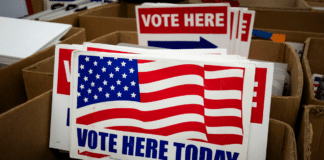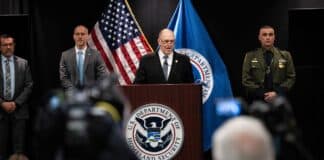In a recent statement, Senator JD Vance of Ohio, part of the Republican Party, made comments implying that Russia’s willingness for a landmark prisoner exchange with the United States was driven by the anticipation of Donald Trump’s potential return to the presidency.
Vance, who is supporting Trump’s campaign for the 2024 presidential election, praised the exchange during a conversation with CNN, highlighting the importance of the Americans involved returning home. He criticized their imprisonment as unfounded and speculated that their release was influenced by global adversaries betting on Trump’s political comeback, viewing this as a demonstration of Trump’s formidable influence.
This exchange, which marks a significant event not seen since the Cold War’s conclusion, involved the coordination of seven countries, leading to the liberation of over two dozen detainees. These included well-known figures such as Evan Gershkovich, a journalist from the Wall Street Journal, and Paul Whelan, a former Marine, whose releases were confirmed by President Biden. High-profile individuals such as Alsu Kurmasheva and Vladimir Kara-Murza were also among those released, alongside advocates associated with Alexei Navalny.
Reacting to Vance’s comments, Jake Sullivan, Biden’s national security adviser, chose not to engage, quickly moving on to other queries during a press briefing.
Criticism came from President Biden himself when questioned about Trump’s earlier claims of being able to secure hostage releases without any concessions. Biden responded pointedly, questioning why Trump had not achieved such outcomes during his own term.
The agreement facilitated the release of a group that included Vadim Krasikov, identified as a convicted assassin from Russia, as per reports from Turkey that contributed to orchestrating the swap. This complex international negotiation has sparked various interpretations and discussions on its implications for American diplomacy and the influence of past and potential future administrations.





